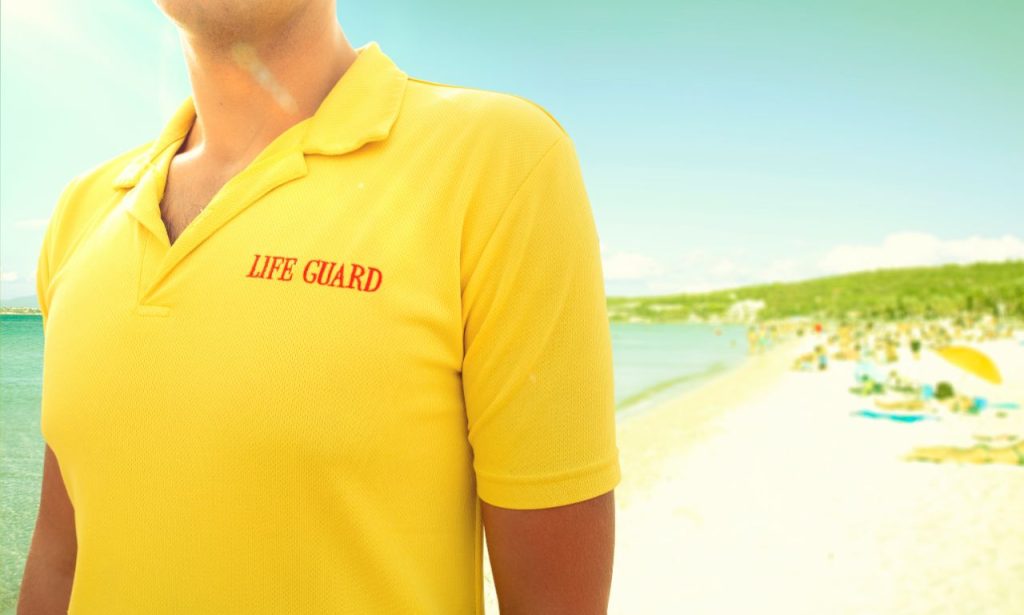Ever wondered if your less-than-20/20 eyesight could hold you back from your dream job? 👀 Well, for some occupations, crystal-clear vision isn’t just a nice-to-have — it’s a non-negotiable requirement.
In this article, we’ll take a closer look at the jobs where visual acuity is absolutely essential. So sit back, adjust your glasses or contacts if needed, and let’s dive in!
1. Pilots
When it comes to jobs that require perfect vision, pilots are the poster children. And it’s no wonder why — when you’re responsible for safely flying a metal tube full of people through the sky, you can’t afford to miss even the tiniest detail.
Both commercial airline pilots and military pilots have to meet incredibly strict vision requirements, including:
- 20/20 distance vision, correctable with glasses or contacts
- Normal color vision (no color blindness allowed)
- Healthy eyes with no major issues or diseases
Aspiring pilots undergo rigorous vision testing as part of their medical certification process. So if you’ve always dreamed of a career in the clouds, make sure your eyesight is up to snuff.
2. Air Traffic Controllers
While pilots are busy flying the planes, air traffic controllers are the unsung heroes on the ground, orchestrating the complex ballet of takeoffs, landings, and everything in between. And just like pilots, they need top-notch vision to do their jobs safely and effectively.
Air traffic controllers must have:
- 20/20 vision, correctable with glasses or contacts
- Normal color vision
- Healthy eyes with no major issues
- Ability to accurately judge distances and depths
With thousands of lives in their hands every day, it’s crucial that air traffic controllers can see clearly and make split-second decisions based on visual information. No room for blurriness here!
3. Police Officers

Law enforcement is another field where excellent eyesight is a must. Police officers need to be able to:
- Quickly and accurately assess potentially dangerous situations
- Spot and identify suspects from a distance
- Read license plates and other small details
- Safely operate a vehicle at high speeds
Most police departments require officers to have at least 20/40 vision, correctable to 20/20. Color vision is also tested, as officers need to be able to distinguish between colors like red and green (think traffic lights).
So if you’re considering a career in law enforcement, make sure your vision is up to the challenge. You don’t want to let a suspect slip away because you couldn’t quite make out their face!
4. Firefighters
Firefighters face some of the most visually challenging conditions imaginable — thick smoke, bright flames, and dark, cluttered environments. In order to navigate safely and effectively, they need excellent vision.
Most fire departments require:
- 20/40 vision, correctable to 20/20
- Normal color vision
- Normal depth perception
- Wide peripheral vision
Firefighters also need to be able to quickly read gauges, maps, and other critical information in low-light conditions. So if you’re thinking of joining the ranks of these brave men and women, make sure your eyesight is as sharp as your courage.
5. Surgeons
When you’re literally holding someone’s life in your hands, there’s no room for visual error. That’s why surgeons need absolutely impeccable eyesight to do their jobs safely and effectively.
Most surgical specialties require:
- 20/20 vision, sometimes without correction
- Excellent depth perception and hand-eye coordination
- Normal color vision (important for distinguishing anatomical structures)
Surgeons also need incredible visual stamina — some operations can last for hours on end, requiring intense concentration and visual focus. So if you’re considering a career in the operating room, make sure your eyes are up to the task.
6. Lifeguards

Sun, surf, and saving lives — being a lifeguard might seem like a dream summer job, but it requires serious visual skills. Lifeguards need to be able to:
- Spot swimmers in distress from a distance
- Read water conditions and identify potential hazards
- Distinguish colors (important for identifying different types of flotation devices)
Most lifeguarding certifications require at least 20/40 vision, correctable to 20/20. So if you want to spend your summers keeping swimmers safe, make sure your eyesight is as sharp as your red bathing suit.
7. Jewelers and Watchmakers
Creating intricate, delicate pieces of jewelry or repairing the tiny gears of a watch requires incredibly precise vision. Jewelers and watchmakers need:
- Excellent close-up vision (sometimes aided by magnifying lenses)
- Steady hands and fine motor skills
- Ability to distinguish subtle variations in color and texture
While there are no formal vision requirements for these professions, most successful jewelers and watchmakers have naturally keen eyesight or have found ways to compensate for any deficiencies. So if you dream of working with precious metals and gems, make sure your vision is as sharp as the diamonds you’ll be handling.
Other Vision-Critical Jobs
While the jobs we’ve covered so far have some of the strictest vision requirements, there are plenty of other professions where excellent eyesight is a huge asset. These include:
- Photographers and videographers
- Graphic designers
- Architects
- Dentists
- Electricians
- Truck and bus drivers
- Construction workers
- Quality control inspectors
- Proofreaders and editors
In all of these jobs, having sharp, accurate vision can make a big difference in your performance and success.
Comparison Table
To help summarize the vision requirements for some of the jobs we’ve discussed, here’s a handy table:
| Job | Distance Vision | Near Vision | Color Vision | Depth Perception |
|---|---|---|---|---|
| Pilot | 20/20 corrected | 20/40 corrected | Normal | Normal |
| Air Traffic Controller | 20/20 corrected | 20/40 corrected | Normal | Normal |
| Police Officer | 20/40 corrected to 20/20 | 20/40 corrected | Mostly normal | Normal |
| Firefighter | 20/40 corrected to 20/20 | 20/40 corrected | Normal | Normal |
| Surgeon | 20/20, sometimes uncorrected | 20/20 | Normal | Excellent |
| Lifeguard | 20/40 corrected to 20/20 | 20/40 corrected | Mostly normal | Normal |
Keep in mind that these are general guidelines and that specific requirements can vary by employer and jurisdiction.
Conclusion
So there you have it — a closer look at some of the jobs where perfect vision is a must. From the cockpit to the operating room, these professions demand the sharpest of eyes and the keenest of visual skills.
But even if you don’t aspire to be a pilot or a surgeon, taking care of your eyes is still incredibly important. Regular check-ups, proper eye protection, and a healthy lifestyle can all help keep your vision sharp for years to come.
And who knows? You might just discover a hidden talent for jewelry making or lifeguarding along the way. The world is full of possibilities — all you need is a clear vision to see them.
So here’s to keeping our eyes on the prize, whatever that prize may be. Whether you’re soaring through the skies, saving lives on the beach, or creating tiny works of art, remember: your eyes are your most precious tools. Take care of them, and they’ll take care of you.
Happy job hunting, and may your vision always be 20/20!
ALSO READ: The 10 Worst Jobs for Those with Social Anxiety(Opens in a new browser tab)
Frequently Asked Questions
If your eyesight doesn’t quite measure up to your chosen profession’s standards, don’t despair! In many cases, vision can be corrected with glasses, contacts, or even laser eye surgery. Talk to your eye doctor about your options.
It depends on the severity of your colorblindness and the specific requirements of the job. Some mild forms of colorblindness may be acceptable, while more severe cases could disqualify you. It’s best to research the specific requirements for your desired profession.
No, not at all! While some jobs have strict vision requirements, many others have more flexibility. And in some professions, like coding or writing, vision plays a much less critical role. The key is to be aware of your own visual strengths and limitations and to choose a career path that plays to your strengths.
Many employers that require excellent eyesight will include a vision test as part of the application process. However, it’s always a good idea to get regular check-ups with an eye doctor, even if your job doesn’t have specific vision requirements. Catching and correcting vision problems early can make a big difference in your overall quality of life.




